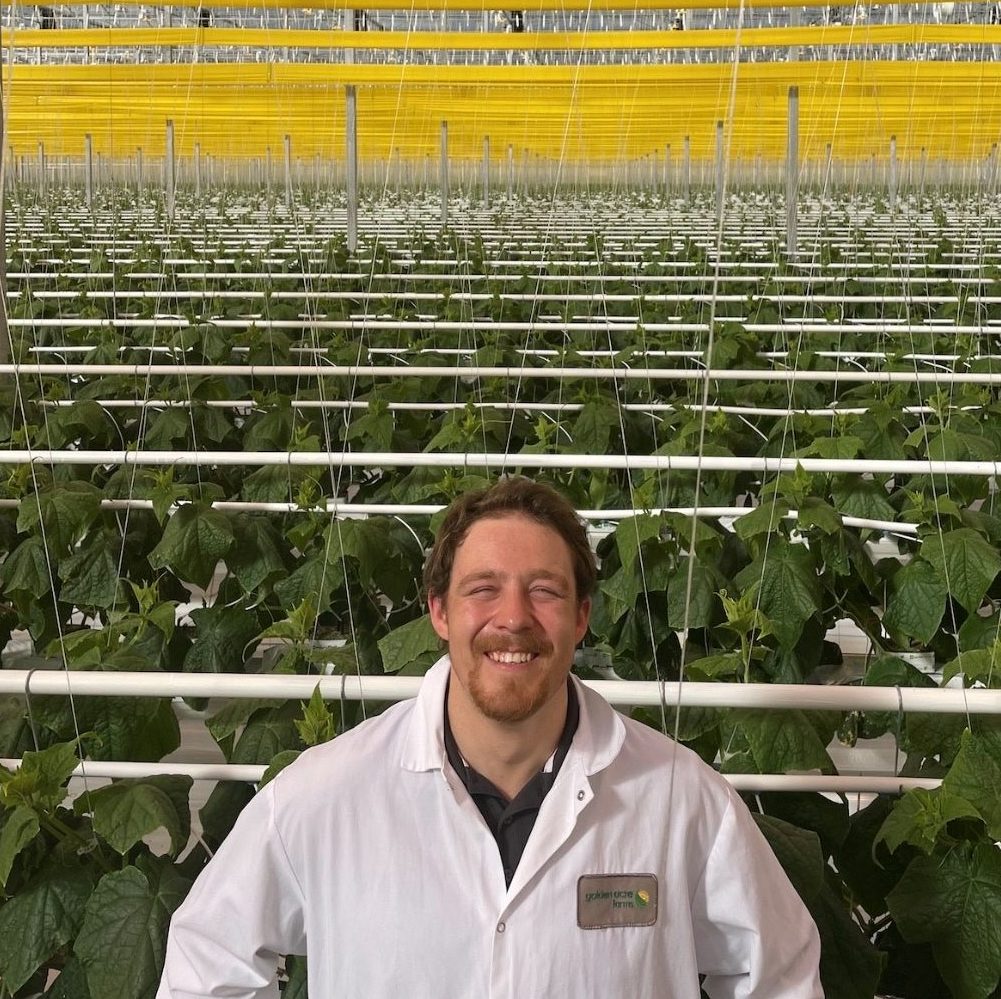Identifying Plant Stress and Insect Damage in Greenhouses

About
| Name | Daniel Bateson |
| Title | Agronomy Lead |
| Company | Ecoation |
| Grad year | 2019 |
| Program | BSc Applied Biology |
| Major | Applied Plant and Soil Science |
What were the highlights of university life at LFS and UBC?
July 20, 2023- University life felt like one big highlight to me, but I was very fortunate to end up in LFS. The major highlights for me were the smaller class sizes, the passionate professors, and getting to do my labs and experiments at the UBC Farm. Beyond LFS, I spent a lot of my time working with UBC REC, performing improv, and working with Roots on the Roof.
How did your time in LFS impact you in your career since graduating?
LFS is why I am where I am! I work in horticulture now and probably the greatest skill I gained in LFS was a systems thinking framework. Being able to see the interconnection of biological systems and giving me a broad base of knowledge helps me make more balanced decisions day-to-day. In a more professional sense LFS was very helpful for me, a TA helped me get my first field job, my mentor was a reference for my first greenhouse position, and the education I gained has brought me success and opportunities since I graduated.
What are you currently working on?
Right now, I am working in greenhouse technology — helping train vision systems to identify signs of plant stress and insect damage, as well as catalogue the plant digitally. I get to work with engineers and data scientists. Also, I help growers interpret and understand their disease and pest pressure, and how to manage it in greenhouses.
What motivated you to volunteer in the LFS Mentorship Program?
I was a part of the program when I was a student, so perhaps there was some form of duty calling me back, but I think it’s important for students to be exposed to what’s going on in the industry beyond academia, and see how they can apply what they’re learning. Agriculture and horticulture can be closed off if you didn’t grow up in it, so finding opportunities to integrate new and passionate people into the mix is important.
Are there other ways that you feel you benefit by volunteering?
Volunteering always feels good. Other than being able to give back it’s always refreshing and inspiring to see what students envision in the future.
What is one message you would like to share with students about how they can prepare for the world of work?
Work on your soft skills. Your employer will train you on the day to day things you need to know, but they will not train you to be curious, to lead, or be assertive. Those are the skills that will make you an asset anywhere, so practice them!
What is something that you are proud of that you have accomplished in your career?
I’m proud of many things, but in my first season working as a manager of Integrated Pest Management in a pepper greenhouse I was able to reduce our pesticide usage, improve pest control, and save money. It felt good to know that new ideas, and fresh energy can change things for the better.
And finally, what advice would give to encourage alumni to become mentors?
Firstly, if you ever felt lost or confused in your career path, then this is a great way to pay it forward and to help spare someone else as much anxiety. Secondly, if you want to influence, shape or inspire your future co-workers, colleagues, and employees then look no further. And lastly, it’s a lot of fun. Go have some great conversations, share some stories, and help out!
Tagged with: 2023, Alumni, Applied Biology, Plant Science